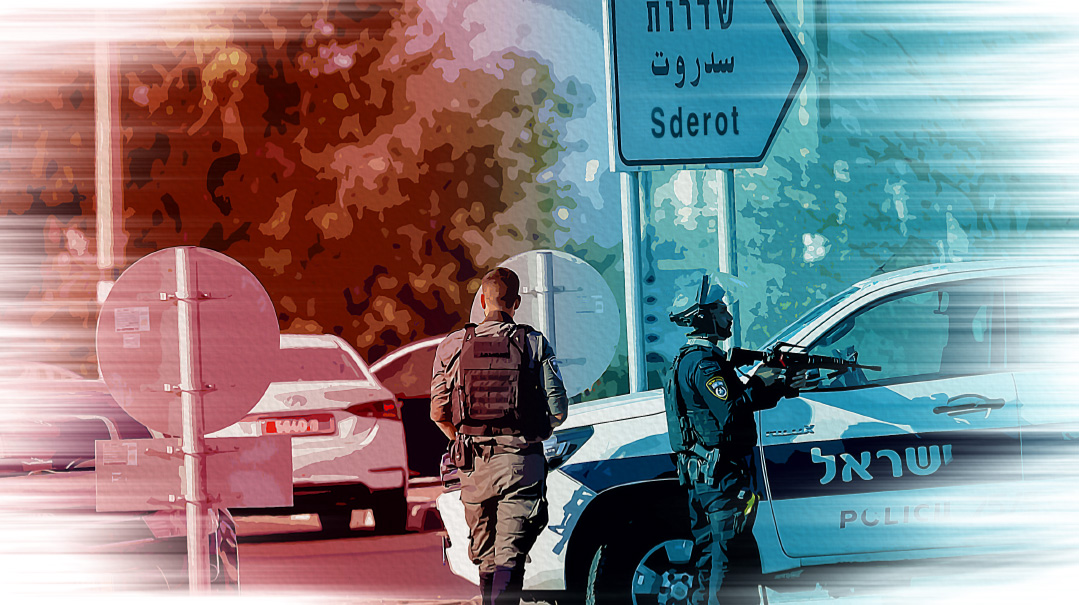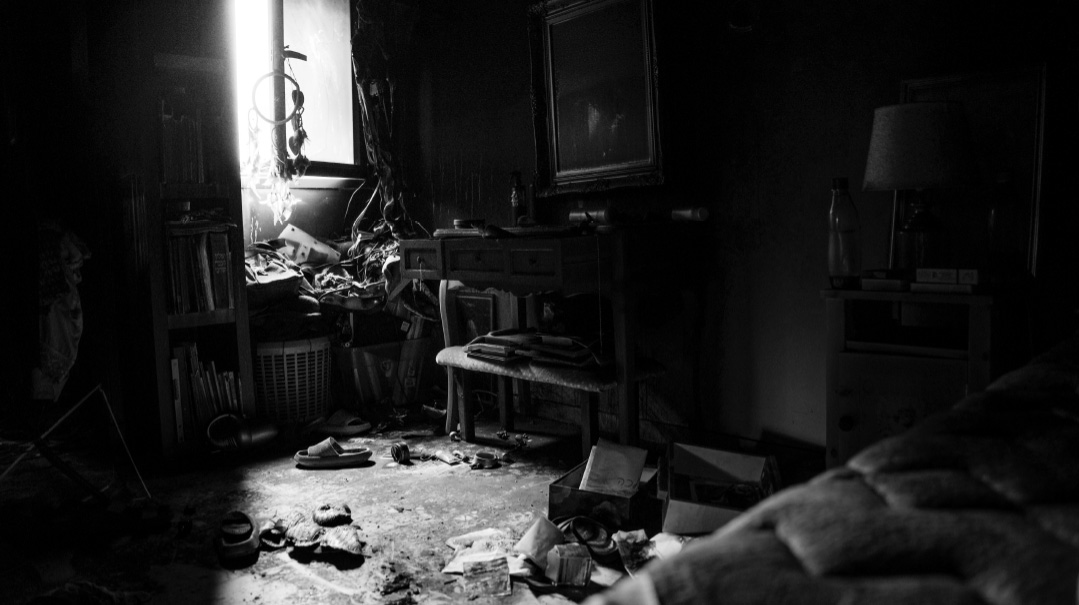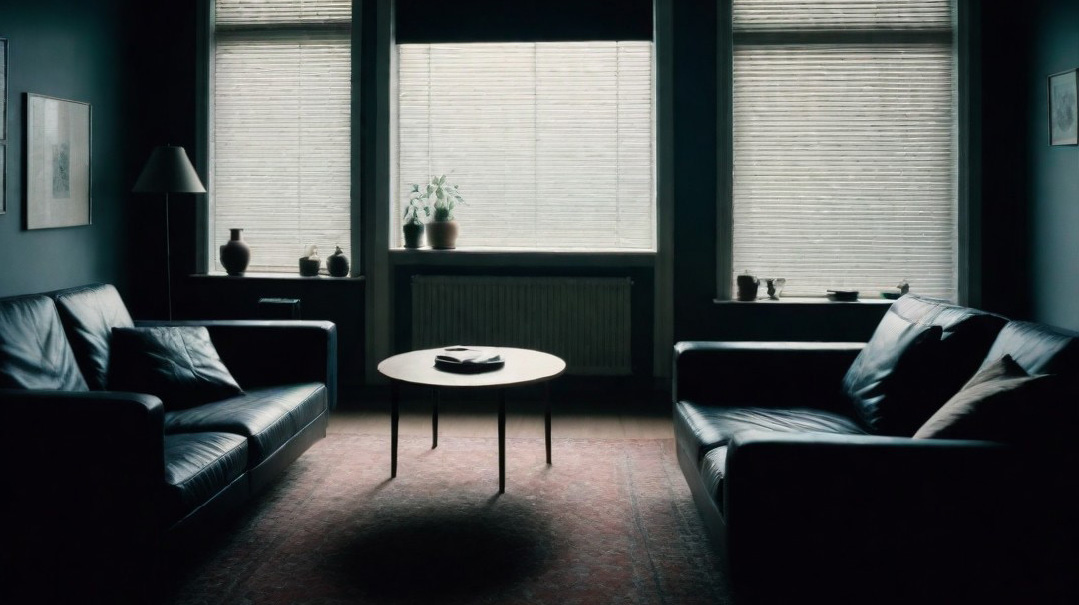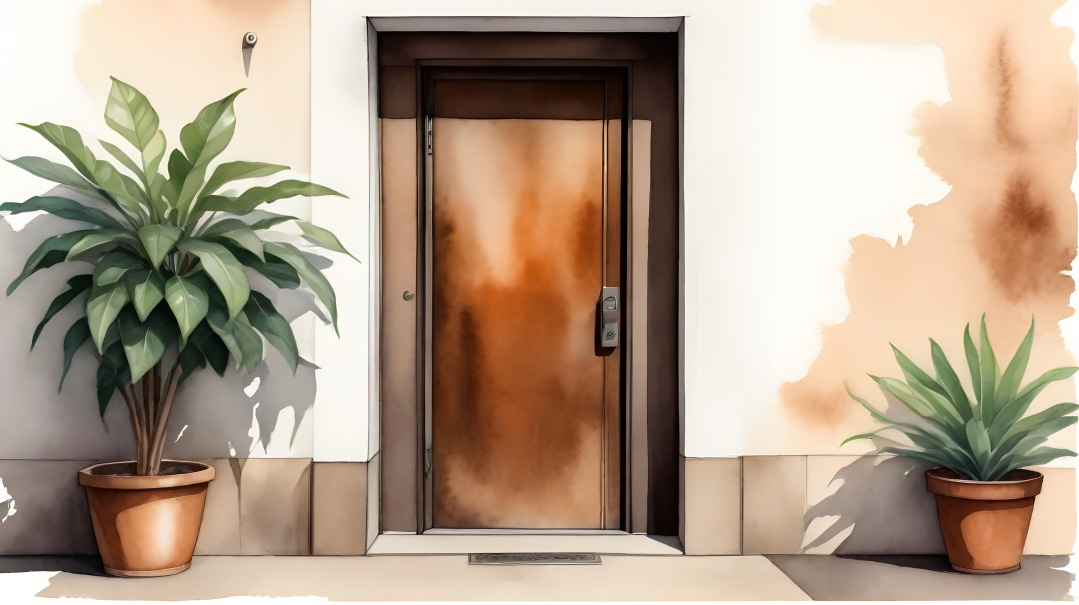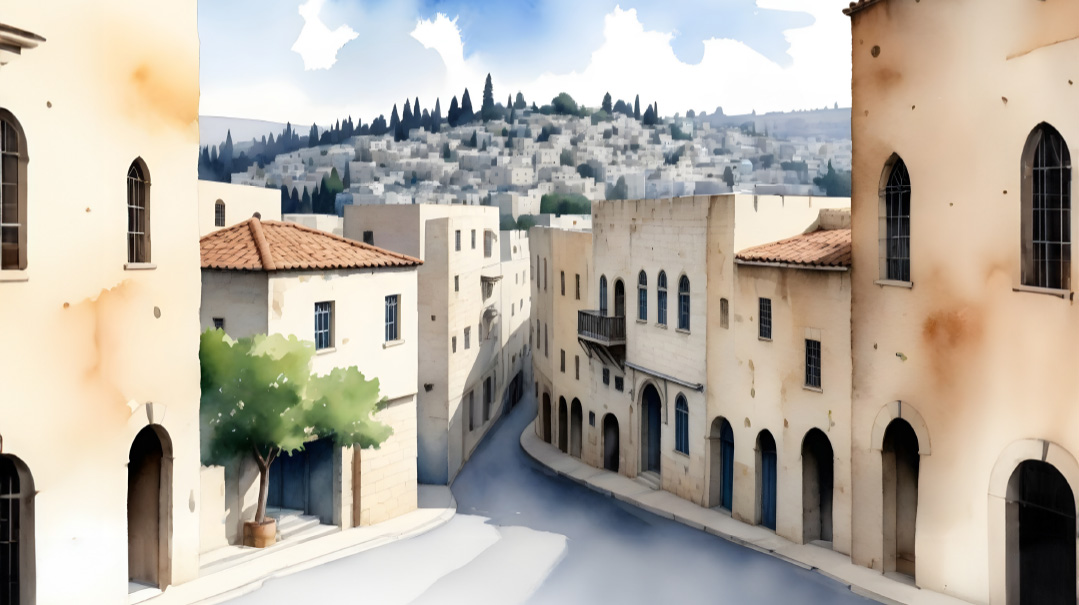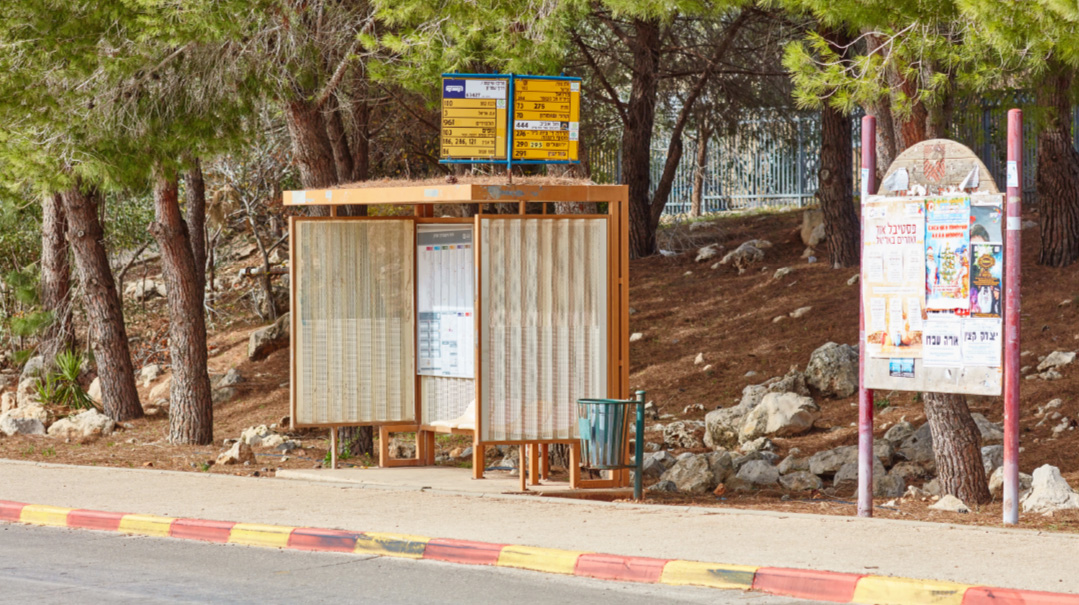On Morale and Chickpeas
| October 31, 2023I tried to mm-hmm in validation, then say: “Please G-d, just like it started suddenly, it will end suddenly and miraculously”

I’m a health care worker, so when the war started, I had to come in to work Sunday morning as usual. I expected the clinic to be empty, but that wasn’t the case. Person after person slumped in, usually needing some kind of semi-emergency care that couldn’t wait, and slumped out again. Everyone was dejected, anxious, angry, or afraid.
“What do you say about our wonderful army now, eh!” one elderly veteran soldier bellowed, waving his cane. “How did this happen? How did it happen?”
There was nothing I could say.
“I just can’t. I can’t,” was what a number of clients said, apropos of nothing. Sometimes, when barrage after barrage of missiles hit Ashkelon, both I and whichever patient was in the room instinctively stood listening, waiting for the bombing to end. Boom. The clinic shook. Boom, boom, boom. One, two, three. Silence. Onetwothreefourfive. Silence. Silence. One-two, bam, bam, bam.
By Monday afternoon, I was depressed. I was frightened, like everyone else. My kids were home, like everyone else. And on top of everything, I seemed to be absorbing everyone else’s misery.
Doing home visits on Tuesday, I asked an elderly couple to please turn their TV off while I treated them; I had successfully avoided watching the news until then and had no intention of traumatizing myself further. The couple angrily refused.
“We have a responsibility to keep ourselves informed,” the wife told me. Finally, as a compromise, the couple turned the sound down, but not before my elderly patient shouted, “This is reality! You have to be able to handle reality! This is the truth of what is happening!”
She was right. There was no way out. This is the true, awful, reality. But I also realized that I really couldn’t function without some level of cognitive dissonance. I had to keep caring for people, to keep working. I had to keep being a functional and cheerful wife and mother. Depression, despite the devastating reality, was not the way forward.
The next day, I tried something different. When people came in, and inevitably started talking about the trauma, I tried to mm-hmm in validation, then say: “Please G-d, just like it started suddenly, it will end suddenly and miraculously.”
People responded differently to this, but they uniformly left less dejected than the patients I’d seen earlier in the week. “From your mouth to G-d’s ears!” some patients — even secular ones — said. And slowly, a trickle of people started sharing small positive snippets about the situation.
One woman came in and sat down. “I have 26 descendants in the army, you know,” she said. “I’d lie to you and tell you that my sons, sons-in-law, grandsons, and grandsons-in-law are all I can think about at the moment, but it’s not true, you know.”
“Hmm,” I said, continuing to treat her.
“It’s not true because I have two granddaughters with six kids each staying in my dirah. They couldn’t stay alone on the Arab-surrounded yishuvim with no men there. With 12 kids to take care of, I don’t have a minute to think at all!” She laughed.
“You know,” she continued conspiratorially, “I live in an old building, with a shared mamad. When the siren went yesterday, I sent all the kids racing downstairs. Then I sat in my kitchen and drank a cup of coffee. Bombs or a coffee break — you have to get your priorities right, you know.”
I laughed with her.
“My little grandson asked where I’d been,” she continued. “I told him that I’d stayed upstairs. But when the siren went again, I felt it only right to accompany the kids downstairs. When we were all squished into the mamad, I saw that the little ones seemed scared, so I started singing to them. After a few minutes, my little grandson turns to me and says sweetly, ‘Savta, you can go back upstairs now.’ That’s how bad my voice is!”
I was smiling when she left the room.
“You know,” another woman told me later in the day, “I have a lot to be thankful for. The worst that has happened so far is that my carefully stocked mamad lacked baby wipes. Oy, that was one smelly stay. All the family scrunched in one corner, with the baby by himself in the other corner!”
Finally, I managed to find the small moments of humor and positivity in my own life. Due to the canceled flights, my sister Sara’s family had been staying with me over the first week of the war. Like everyone else, as soon as Yom Tov was over, we immediately went to stock up on basics.
‘But what do you mean by basics?’ my husband asked me. ‘What should I buy?’
“Anything with a long shelf life! Cans! Packets! You know!”
“Okay.” He shrugged and came back an hour later. I sorted through three bags filled with cans of tomato paste and chickpeas. “I guess it’s enough to keep us alive,” I said dubiously, resolving to do my own shop the next day.
A few days later, my sister asked me if there were baked beans in Israel. “Yes!” I said, “and we actually have some! We just stocked up!”
“Great,” said Sara.
“How were the baked beans?” I asked her later.
“Um, so yeah, I was going to tell you. I opened a can that turned out to be… chickpeas. I put it in the fridge. Did you mean chickpeas?”
“No, I also have beans, just check the cover,” I said, wondering what I was going to do with the opened can of chickpeas.
When I got home from work, I asked her how her beans had been.
She sighed. “Yeah, I kinda hoped you’d have forgotten. Y’know, all those cans were chickpeas, not baked beans.”
“What?”
Sara opened up the fridge. A shelf of unused, opened chickpea cans stood there. “I was sure one of them must be the beans,” she said. “Turns out I don’t know my beans from my peas. But you’re so busy I was sure that you’d never notice if I carefully lined them up. You’d just keep pulling out a can at a time and say absentmindedly, hmm, more chickpeas? I thought I just used up the chickpeas!”
After over a week of tension and uncertainty, I decided that the kids really needed to go out and I told the kids I’d take them to buy some crafts and toys. We decided that we’d walk; they were all bursting with energy. On the way, we stopped at a playground. It was only minutes later that the siren went off. I grabbed the baby, shouted the other four kids’ names, and began to run, leading the way to the nearest building. People were running in all directions, mothers shouting for their children. What I hadn’t realized was that although there was a building next to the park, you had to run up an incline to get there. And the entrance was all the way in the back.
It felt like we were running through treacle as the sirens wailed and I ran, a line of crying children trying desperately to keep pace. The entrance to the building! Where was the entrance? The kids were stumbling and screaming, “Mommy! Mommy, wait!” but if I stopped they would slow down, and we were all exposed — they just had to keep going—
Finally I reached the entrance, and my eight-year-old thudded into me, followed by my five-year-old niece and my little boy. Only my four-year-old Avigail, weeping and gasping, hadn’t made it yet. But I couldn’t get to her because all the others were clinging to me, and a crowd of other children were pressing themselves against me, the only adult there. “Gaily!” I shouted, “Avigail!!” and finally she reached me.
I ran with everyone into the stairwell just as the building began to shake.
BOOM. BOOM. We all collapsed on a heap on the stairs, shaking, Gaily weeping and clutching at me. BOOM. The acrid smell of smoke filtered into the building as we waited out the requisite ten minutes following the final thud and the sudden silence.
“Are we still going to the shekel shop?” my indefatigable little boy suddenly asked. “You said we would, you said!”
I know I said, I thought, but we’re being BOMBED, kid, no WAY. We’re going HOME. Suddenly I remembered Shemini Atzeres, with missiles visibly being exploded above our heads and the constant wail of the sirens. My neighbor had banged on my door, all dressed up and ready to go out. “What are you hiding in here for?” she’d demanded, with typical Israeli politesse.
“There’s sirens! We’re staying indoors!” I had responded. Like, duh?!
My neighbour had drawn herself up to her full height. “No Aravuchki is going to stop us from dancing with the Torah!” she declared, using an insulting term for ‘Arab.’ Head held high, she left for shul with her sons in tow. Utterly bonkers, I’d thought at the time, but now I suddenly wondered: Was she mad or courageous?
“Okay,” I told the children shakily. “Let’s keep walking. We’ll stay near buildings the whole time.”
But on the main road I was suddenly overcome with weakness.
“We need to go home,” I told the kids. “The shekel shop is too far away. Come, we’ll go to the bakery. I’ll get you a treat.”
The kids pacified, we made our way home, where I met Sara on the doorstep. She grabbed her daughter in a tight hug and said to me: “You’re okay! I knew you were! I knew you were okay! I knew it! You’re fine!”
“Course we’re fine,” I said robustly. I looked my pale sister in the eye. “We had a blast.”
Sara and I held each other’s gaze for a moment, then we both collapsed on the couch, laughing hysterically for a full five minutes.
Then I rose to prepare the by-now-familiar supper: chickpea soup
(Originally featured in Family First, Issue 866)
Oops! We could not locate your form.

